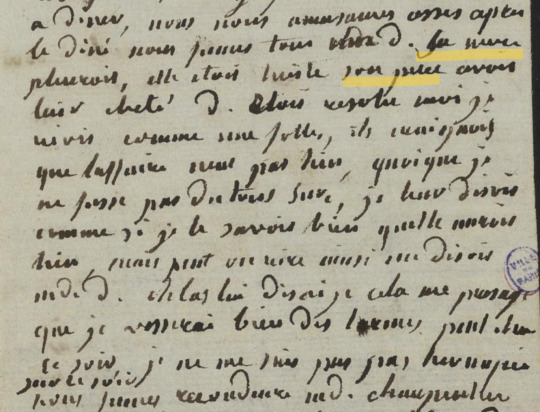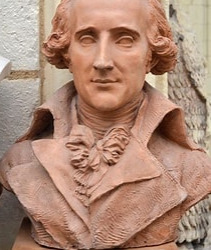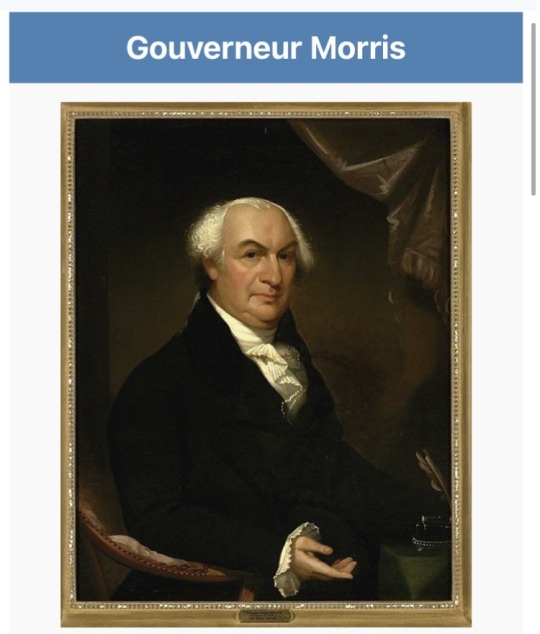Text
Did Romas’ status change during the French Revolution?
I’ve been trying to find out more about Romani during the French Revolution. This article claims that discrimination increased but used examples from before the French Republic and from the Consulate. The only example from the correct time period is the “expedition of the army against Roma in Alsace” which I assume is related to the War of the Pyrenees. While it does seem quite brutal, I can’t find anything saying Romani were particularly targeted?
Even in the Jacobin constitution I can see the section about “residence in France” being discriminatory or even used to argue non-integrated Roma are not citizens. I’m not suggesting that did happen but I’m having difficulty finding information positive or negative which seems odd considering how documented debates and laws regarding Jewish rights were.
This article says that in the 18th century Romani were less so recognized as a specific group and instead within the social/legal category of “bohemian” which included beggars, vagabonds and generally “disreputable” people. The article also claims that during the 18th century more importance was put on registering a specific home address. So maybe I should be looking for legislation related to “bohemians” more broadly?
Based on the efforts to deport them during the Consulate and the lack of information from the Republic, there could also just not be much of a change regarding Romas’ status during the French Revolution?
I’d appreciate if anyone had more information on this!
2 notes
·
View notes
Text
A Hymn from the Fraternal Society of Patriots of Both Sexes
This was sung in honor of the club's inauguration of busts depicting Mirabeau, Franklin, Rousseau and Voltaire.
On this day of allegiance and gratitude,
may Franklin and Mirabeau be carried to
heaven;
Scourges of despotism and supporters of France,
Free people, they are your gods.
Let us celebrate the memory of the sublime Rousseau;
Virtue had chosen his heart as a sanctuary:
Constant friend of man, he applied all his
glory
To make him free and better.
Let us no longer water Voltaire's ashes with tears,
It's a day for pleasure, not regret;
He returns full of glory to announce to the earth,
That a great man never dies.
Now illuminated by the fire of their brilliance,
Dare to tell tyrants the truth, like them;
Models of great hearts, live for the fatherland,
But die for liberty!
21 notes
·
View notes
Note
Now I'm curious: what happened to Tallien to consider him a worse loser than Barras? I only know his involvement in Thermidor and the fact that Theresia left him after all the mess he did to go with a richer banker... Did he embarrass himself in other ways?
How much time do we have? Look, I don't know a lot about Barras, but nothing - nothing - can be as embarrassing as Jean-Lambert Tallien. He is the biggest loser both in terms of "a flop" and "who lost during the revolution" (and he lost more than many people who ended up guillotined, imo).
And I don't even know how/why it happened! He started out okay - he had modest skills but seemed honest about the revolution. Then Bordeaux happened. Thermidor and months after were Jean-Lambert's five minutes of fame, but then it dissolved quickly, both in his professional and in private life.
The Quiberon Invasion mess in 1795 is one of the first examples, when he and Hoche (well, Tallien mostly because it was his orders) executed 750 royalists even after promising they'd be treated like prisoners of war. Yes, those were royalists who made an invasion on France so it's not surprising that they died, but 1) Hoche I think promised they'd be spared but Tallien ordered the execution, 2) Tallien was the one who ran his mouth so much after Thermidor about sparing people and now he executed in one day half of the number of people that were executed in the entire Great Terror, and 3) Seems like Tallien had some pro-royalist dealings/conversations with foreign powers (Spain mostly) and wanted to do a cover-up (? - will need to look into this further).
In his private life, Theresia wanted to leave him as early as 1796 and was reportedly banging Barras, but Tallien begged her to give him another chance. She said yes, and 9 months later she gave birth to a stillborn boy. We are not sure if the baby was Barras' or Tallien's.
Life in the Directoire was not great for Jean-Lambert and he was struggling with money, so he joined Napoleon's expedition to Egypt. It was horrible; he was miserable and suffered health problems. He wrote clingy letters to Theresia ("Care for our daughter and be faithful to me, my love!") (Spoiler: She was already on kid number two by the banker). The letters were intercepted by the enemy and read publicly. On his way from Egypt, Tallien was arrested and spent some time with the enemy but was released. Coming back from France must have been horrible, though, because Theresia asked for a divorce (and by the time it was done, she was already pregnant with banker's baby number 3). Because the kids were technically conceived while she was married to Tallien, they later successfully asked to have Tallien as their last name and were known as "Tallien bastards" in the family.
After, it was just a series of bad circumstances and decisions. Theresia remarried, to a Belgian prince, and we have a letter where Tallien begged her not to do that. Fouché tried to help him and found him a job in Alicante. But it was horrible because the whole town was infected by the Yellow Fever. Tallien contracted it and lost one eye. It is also possible that this is where he got leprosy (?)
When he got back to France, he was a ruin. He supported Napoleon in 1815, hoping to get some influence (I assume), but then Waterloo happened so another bad call for Jean-Lambert. He lived in poverty and only escaped banishment during the Bourbon restoration because of his poor health. He died at 53 of leprosy (at least wiki claims so - I could never verify it but we know he suffered poor health for years).
And on top of that - on top of that! - his magnum opus, his legacy, the thing that lives on for 200+ years, is not associated with him. Nobody knows of Jean-Lambert Tallien and his most crowning achievement: the invention of the Terror and evil mastermind Robespierre. Sure, he wasn't the only one involved in that, but he did play a crucial role and, arguably, it is the most historically important thing that he did. And nobody knows it was him! So many people hate Robespierre for 200+ years, but nobody knows who is responsible for forging that smear campaign. (Yes, I am aware that it's the point: if people knew it was constructed, and by specific people, they wouldn't view it in the same way, because the main thing about the Terror how it's seen is that it's an objective thing that happened just as described. But allow me this Tallien rant).
So.. yeah.
#i wonder if Tallien was less popular than SJ at least with the Paris public#also their relationship was so weird both ways considering they met when she was technically his prisoner#tallien
42 notes
·
View notes
Text

Tried painting Camille.
12 notes
·
View notes
Text
I read the description of August 10th in Lucile's handwritten manuscript in the BHVP archives.
Here is description of the Dantons' house:

It seems to say "[…] nous fumes tous chez D [Danton]. Sa mère pleurait, elle était triste, son père avoit l'air ebeté[…] (= We were at Danton's house. His mother was crying and sad. His father was dazed[…])". This "Sa mère" could be Danton's mother or Gabrielle's mother (if the former, it seems odd that she would come all the way from Arcis to dangerous Paris), not Gabrielle. The next sentence is hard to read, but I still think the subject is "son père" (= maybe Georges or Gabrielle's father), not "son petit".
I also read the description afterwards and was able to confirm that it was Madame Robert (=Louise Kéralio) who fainted and was taken care of by Lucile, not Gabrielle.
History books (and the novels based on them) are clearly wrong in stating that it was Gabrielle who cried and fainted. Where did the error occur? Some biographers (and novelists) often use this (erroneous) description to explain her character, claiming that Gabrielle was a weak and unhappy lady, as Lucile writes, so she died in 1793. But if these are all statements about others, then there is no evidence at all for this description. (Besides, both her mother (or her mother-in-law) and Kéralio, who actually cried or fainted, survived the Revolution and did not die prematurely.)
I also found two manuscripts of the same content in the archives, one in small bold type as shown above, and the other in a more legible manuscript that appears to be a clean copy. As far as I can tell from Philippe Lejeune's transcription, the former is probably the original version of Lucile's diary. (Unless I'm missing something, however, Lejeune makes no mention of the latter).

Was it Lucile herself who did the cleaning up? Or someone else? For what purpose was it made?
#people were spreading libel about Gabrielle?#I guess to indirectly insult her husband but she might have been a more public person than I realized#gabrielle danton
13 notes
·
View notes
Text
Just found out that newish Castlevania show takes place during the French Revolution??

I had no idea based on their outfits but I liked the original show so maybe I should finally watch this one
5 notes
·
View notes
Text

In the gender history book Death Comes to the Maiden the author claims that Robespierre suggested female suffrage to the Constituent Assembly but doesn’t cite any sources ):
If that were exactly true I think I’d have seen that before but I wonder where she based her claim on? I’m not sure if there’s a recording of the Constituent Assembly like there is with the Jacobins/National Assembly?
She also says that select feudal land-owning women could vote for the first and second estates which sounds plausible but she doesn’t cite anything again lol
17 notes
·
View notes
Text
I'll limit myself to recalling that of a neighboring nation, whose morals are a new proof of my system: all the world knows that England, which, despite the name of Monarchy, is no less a real Republic, has thrown off the yoke of opinion which is the subject of our research.
-Maximilien Robespierre , 1785
#frev#robespierre#maximilien robespierre#french revolution#as far as I can tell he isn’t joking/being sarcastic here btw#compared to France at the time England was far more democratic so what he’s saying makes sense it just sounds funny from him#a lot of this essay is interesting in hindsight
5 notes
·
View notes
Text
The person I want to know more about the most in the French Revolution is Sillery but I don’t know where to start. Most of the interesting info about him seems to only be in French and I don’t trust myself to read/translate accurately.
The Sillerys and Pamela show up in the most random places though and I want to know more.
3 notes
·
View notes
Text

#always thought Camille looked like that#more in a late 70s-80s rock way than a stoner way though#like I think he’d love Born to Run
42K notes
·
View notes
Text
In the wiki of Madame Dupin (mid 18th century salonnière; also George Sand’s great grandmother) she wants to write a proto-feminist book to challenge the sexism in Montesquieu’s work and apparently enlists ROUSSEAU to help write her book on gender equality

Also this wiki claims that Montesquieu was at least partly made sexist by Rousseau getting more women than him?
#if Rousseau had actually published their treatise on gender equality we would have gotten French women’s sufferage by 1793#also how bad on women is Montesquieu??#frev#french revolution
5 notes
·
View notes
Note

Sorry I keep sending asks about her memoirs but do you have any idea what the “strumpets of the committee” is about? The notation by the publisher just makes me more confused.
Sorry for a late and very anticlimactic answer, because I can’t really say I have much of any idea of what’s going on here, and I don’t know if it’s the context or the English language that is failing me… Figuring out if there’s actually any truth in this is something I’m also having a hard time doing — partly because so little seems to have been written on Sillery (it would appear he, like in the case of the Roland couple, has been more or less overshadowed by his wife historiographically). Or I’m just blanking with the sources since I haven’t read up that much on the girondins. Exactly how Manon would know about this detail, given the fact was kept in a different prison than the Luxembourg, is yet another question I can’t answer. Though I suppose rumour would spread even there…
#Thank you!#It almost sounded like the board of trade was run by the women which confused me#but looking at it now it might just be a part of the Comittee#My semster started so I haven’t been on tumblr but thanks again!
5 notes
·
View notes
Text

First video essay on Bordel patriotique
#saw this on Twitter but I kinda want to know WHY 1789 specifically without having to watch this#frev
1 note
·
View note
Text

Apparently people don’t know about the gay piano bar at Thomas Paine’s former residence and death site???
244 notes
·
View notes
Text
Happy birthday, Georges Couthon!
I've just seen a post which reminded me that today (22nd December) is Couthon's birthday.

Happy birthday to an underrated and too often overlooked revolutionary, particularly dear to those of us who are disabled and/or have chronic health conditions.
#happy bday🎉🎉🎉❤️❤️🤗🤗#georges couthon#I have Couthon-related letter I’ve been too lazy to post#but now I have a good reason lol
121 notes
·
View notes
Text


French wiki made me realize Gouverneur’s weird first name that sounds like a last name is because it’s just his mother’s last name lol
#Darcy also has his mother’s maiden name as his given#so i guess that was a thing with the Georgian anglosphere#it’s a cool way to name your kids I like it#gouverneur morris#amrev
8 notes
·
View notes
Text
My brother loves card games and was looking for ones he thought I’d like to play and found “Guillotine”

You get points by executing nobles and look who’s included in the “nobility deck”💀

37 notes
·
View notes